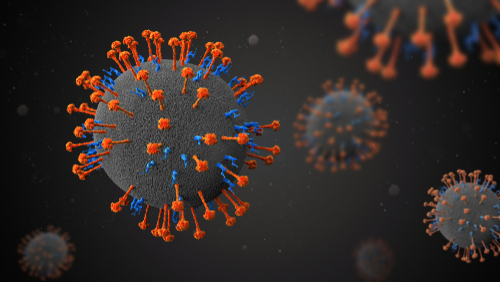As 'Nipah' season approaches, Kerala government taking measures to prevent outbreak
Partner Content Dec 12, 2018
A circular was issued by the Addl. Chief Secretary (Health) informing the Director of Health Services and the Director of Medical Education to caution the public about the virus.

There has been much speculation that ‘Nipah season,’ as it has been called, is near. According to officials in the state of Kerala, it is between the months of December and June that the virus is most likely to appear and spread.
“The Nipah season is considered to be between December and June, and not just in India, but the entire subcontinent,” says Additional Chief Secretary (Health) of Kerala, Rajeev Sadanand.
He explains that the probability of the Nipah infection returning to an area where it has been detected previously, is higher than in a new region. “So what we have to do is ensure that we have all the measures to be able to pick it up from the first case itself, should the virus return,” states Rajeev.
Health department officials from the state of Kerala have already begun ensuring that preventive measures are in place. A circular was issued by the Addl. Health Secretary informing the Director of Health Services and the Director of Medical Education to caution the public about the virus and to tell them to avoid eating fruits which may have been bitten by bats.
What is Nipah virus?
Nipah virus is a virus transmitted to people and animals through bats of the Pteropodidae Family, which are thought to be the natural carriers of the virus.
The first outbreak of Nipah was reported in 1998 from Malaysia, which resulted in the death of over 100 people, where domesticated pigs were thought to be the hosts, according to the World Health Organisation (WHO).
Nipah virus infection can be caused by direct contact with an infected individual or animal, as well as through contact with an animal which is a carrier of the virus (largely known to be pigs or fruit bats). It is extremely contagious and can also spread from eating half-eaten fruits contaminated by a carrier of the virus, according to a report in the Indian Journal of Virology.
Nipah in India
Earlier this year, a Nipah virus outbreak plagued the state of Kerala with 19 deaths being reported overall (18 confirmed cases, 1 unconfirmed). Prior to this, an outbreak had been reported in West Bengal in 2001, which officials had attributed solely to fruit bats.
“Guidelines with precautions have been distributed to the health directors alerting them of the Nipah season and cautioning people against eating fruits which may have been bitten by bats. We are also telling people to wash fruits and vegetables and telling them to not approach areas encroached by bats,” explains Rajeev. “Since acute respiratory distress syndrome (ARDS) is often seen in Nipah infection, we are telling people to follow proper cough etiquette and use masks,” he adds.
All teaching hospitals in the state now have an outbreak managing unit, which aims to tackle not only Nipah, but also other pathogens with epidemic potential.
This story was originally published on The News Minute and is reprinted here with permission. It can be viewed on https://www.thenewsminute.com/article/nipah-season-approaches-kerala-govt-taking-measures-prevent-outbreak-92821
-
Exclusive Write-ups & Webinars by KOLs
-
Daily Quiz by specialty
-
Paid Market Research Surveys
-
Case discussions, News & Journals' summaries